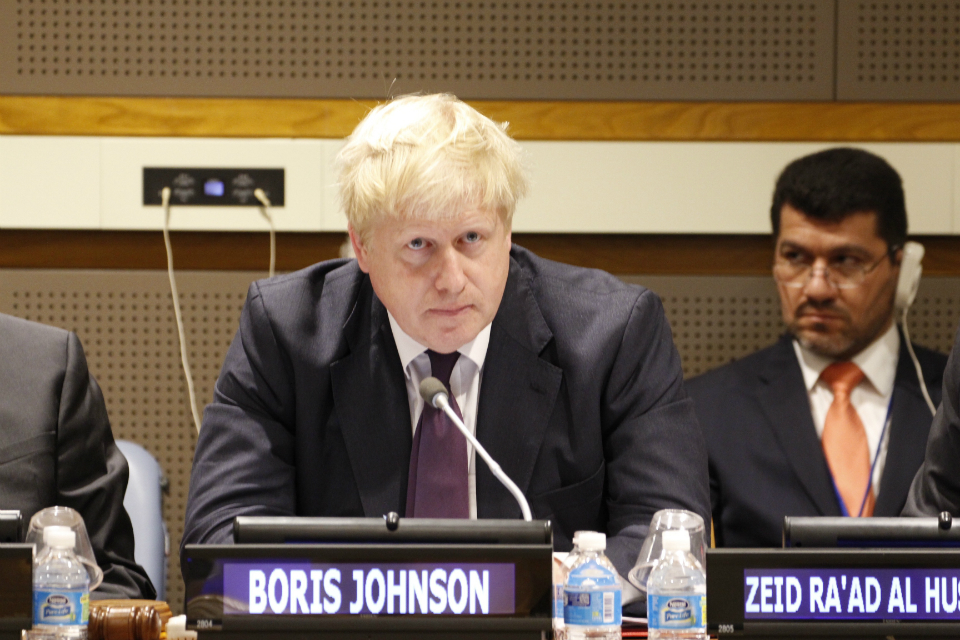"Our aim has got to be justice for all of Daesh’s victims."
Speech by UK Foreign Secretary Boris Johnson on Bringing Daesh to Justice at the 71st United Nations General Assembly ministerial week.

Let me begin with one bright spot on the landscape. Daesh has failed to establish the “state” it had the preposterous ambition to create; a caliphate in Iraq and Syria.
They have been routed on the battlefield, they lost about half of the territory that they had in Iraq, and about one fifth in Syria. And thousands of people are proclaiming their joy at being liberated from Daesh rule. But whenever they are pushed back, I’m afraid Daesh leave an ineradicable scar on those communities: torture, massacre, rape, mass enslavement of minorities.
And so today, I want to make a simple and unanswerable point. In the aftermath of such crimes, I believe we all have an obligation to ensure that justice is done.
And I am very grateful to Didier and to Ibrahim for holding this joint meeting, because I think we are compelled to do this by our duty to those who have suffered so much.
Daesh’s whole ambition, its raison d’etre, is to create disunity, and bloodshed, and hate. We are uniting to fight Daesh, and I believe we should unite to bring them to justice.
I have agreed with my Iraqi colleague, Ibrahim al-Jaafari, that we will bring forward a proposal to the United Nations to lead this campaign. As a crucial first step, we envisage calling on the UN to begin the gathering and the preserving, the vital gathering and the preserving, of evidence of Daesh’s crimes.
We think it’s vital from the beginning that as many governments as possible should show their support, and I am delighted by how many have come along this afternoon, but also of course that this campaign should be supported by as many non-governmental organisations as possible as well.
Those who have survived Daesh atrocities - and those that represent them - must also be at the heart of this enterprise, and I’m very pleased that they are also represented this afternoon.
I want to make one point absolutely clear, I think that this the campaign should focus exclusively on Daesh. The accountability of other actors in area – Syria, Iraq, and Libya— must be dealt with, but I think that there are other ways elsewhere where that accountability can be pursued.
Our aim has got to be justice for all Daesh’s victims: the Sunni and Shia Arabs who are still suffering under its murderous rule; the minorities who have been so pitilessly targeted; the victims elsewhere in the Middle East; and of course those who are maimed and killed in terrorist attacks in Europe and elsewhere, and indeed in this country, here in the United States.
Work has already begun on this in a number of countries, including the UK. But we think the moment has come for a truly global campaign, and I hope that you agree.
I think it will take time, we should be under no illusions, it will take patience to get this done, but I think if we get this right, we can remind the world what this struggle is all about. It is about the eventual triumph of our values of unity and compassion and tolerance over Daesh’s message of hate. But above all, it’s about the triumph of justice for all those who have suffered.
Thank you very much.
This “Bringing Daesh to Justice” event, on the first day of the UN General Assembly (UNGA), was hosted by the Foreign Secretary along with co-hosts the Iraqi Foreign Minister Ibrahim al-Jaafari and Belgian Foreign Minister Didier Reynders. The UN High Commissioner for Human Rights, human rights lawyer Amal Clooney, and Daesh survivor and human rights activist Nadia Murad Basee Taha also spoke at the event.